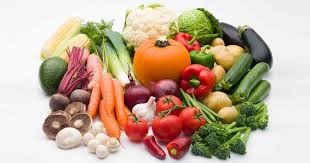Healthy eating is essential regardless of age. But as we aged, healthy eating helps us in better managing our existing chronic illnesses, increases resistance to diseases and at the same time maintaining good emotional balanced and positive outlook.
Why do we need to eat healthily?
- Live longer and stronger
- Well-balanced diet reduces the risk for heart disease, diabetes, cancers and many other chronic illnesses. Good disease control can also be easily achieved. Good nutrition will ensure you to have stronger bones, good eyesight and a good quality of life.
- Sharpen the mind
- Dementia becoming a problem as a result of brain aging. Regular consumption of leafy vegetables and brightly colored fruits, which is rich in antioxidants vitamins and omega-3 fatty acids may decrease the risk of dementia/ Alzheimer’s disease.
- Feels good, looks better
- Good nutrition will provide us with sufficient energy to maintain healthy lifestyle and prevention of anemia, obesity, and problems related with aging such as osteoporosis and osteoarthritis. We can continue enjoying our morning walk, vacation with loved ones, gardening and at the same time looks young and active.

What to eat?
- Eat foods with high dietary fibers such as vegetables and fruits. Take 1 to 1 ½ servings of different colors and types of fruits and vegetables every day or just fill up half of your plate with veggies and fruits.
- Limit fat intake in the diet by:
- Trim off excess fat or skin from meat before cooking.
- Choose bake, stir-fry, grill, boil, steam or roast instead of frying.
- Use low-fat dairy products and salad dressings.
- Limit the usage of oil during cooking. Choose unsaturated or monosaturated vegetable oil for cooking as healthier alternatives. Use non-stick pan/pots.
- Pack in protein
- Drink plenty of fluid
- Reduce sodium/salt intake to prevent water retention and high blood pressure. Recommended average salt intake should be less than 6g per day (about 2.4g sodium). Check for food labels and compare. Then choose food with the low sodium content available.
- Adequate calcium intake.
 |
 |
Photo 2: Choose whole fruit rather than juices for more fibers and vitamins.

Whole grains, wheat cereals, barley, oatmeal, beans, and nuts are a good source of fiber too.
Simple switching your breakfast from your regular corn flakes to bran flakes or white bread to wholemeal bread is a way of adding more fibers to your diet and resolved your constipation problems. Or just ensure that at least half of your grains are whole grains.
 |
 |
 |
Photo 3: Tips: Look for the words “whole” or “whole grain” before the grain’s name in the ingredient list.
Source: www.goredforwomen.org/live-healthy/heart-healthy-cooking-tips/whole-grains-and-fiber/
 |
 |
 |
Source: http://www.e-health101.com/2012/10/healthy-methods-for-cooking-meat/
Sufficient intake of high-quality proteins can help to improve moods, boost resistance towards stress and prevent muscle loss. Avoid too much of low-quality proteins as it increases your risk towards heart disease, cancers, and other illnesses.

Source: http://www.joanmoloneynutrition.ie/2012/03/13/red-meat-link-to-cancer-and-inflammatory-diseases/
As we aged, we lose the sense of being thirsty even though the body needs water. This is why elderly needs to drink regularly and aim of taking between 6 to 8 glass of water (around 1.2litres or more) to prevent from being dehydrated. Besides, plenty of water helps to prevent urinary tract infections. However, those with kidney or heart failure may need to adhere to the doctor’s advice regarding fluid restrictions.
Avoid excessive intake of caffeine (tea, coffee) as this may cause you to urinate more frequent particularly at night. It can also worsen your urinary incontinence problems too.
Limit sugar intake in drink and also other beverages like jams, candies, and baked goods.

Calcium rich foods usually found in dairy products such as milk, yogurt, and cheese. It is crucial to consume at least 1200mg of calcium per day in order to maintain good bone health and prevents from osteoporosis and fractures. Calcium supplement paired with vitamin D may be needed in certain elderly with certain medical problems or inadequate calcium intake.

References
- National Institute of Aging. Retrieved from: www.nia.nih.gov
- British Geriatric Society. (2011). Best Practice Guide. Healthy Eating for Older People.
- Rusha. S. (2013). The Role of Nutrition and Diet in Alzheimer Disease: A Systematic Review Shah, Rusha. Journal of the American Medical Directors Association, 14(6):398 – 402.
- Healthy Eating for Seniors.British Columbia Ministry of Health Services. (Retrieved 28 August 2015)
| Last Reviewed | : | 8 February 2017 |
| Writer | : | Dr. Nor Hazlin binti Talib |
| Accreditor | : | Dr. Ho Bee Kiau |







